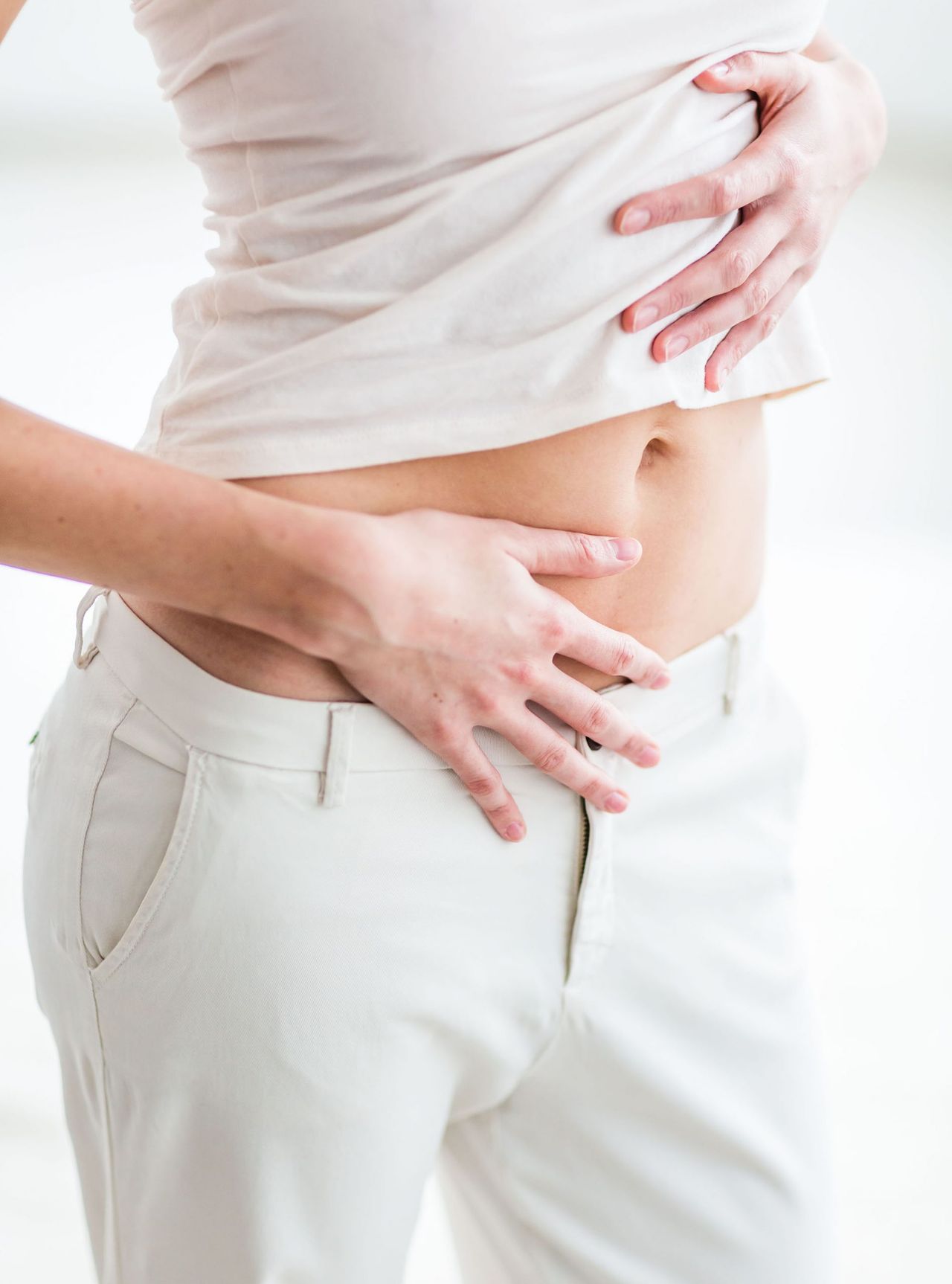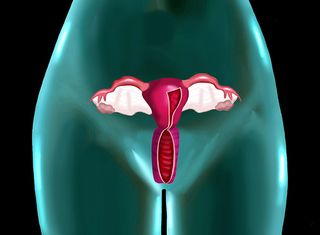The Shocking Truth Behind Endometriosis Diagnoses In The UK

A shocking new report has revealed that women who suffer from endometriosis are being failed in the UK due to a lack of funding which is hampering our understanding of an extremely common reproductive condition.
Endometriosis is an ongoing condition that affects 1 in 10 women of reproductive age (most cases are diagnosed between the ages of 25 and 40). That's two million in the UK alone. The chronic disorder occurs when womb lining grows outside of the uterus and can be found in the ovaries and fallopian tubes, abdomen, bowel and even the bladder.
Although symptoms can vary from woman to woman, common symptoms can include painful periods, persistent fatigue, bladder complaints and, in severe cases, infertility.
And yet despite the high numbers of women affected by endometriosis, a new study conducted by Birmingham City University’s Faculty of Health, Education and Life Scienceshas revealed that too many women are being let down by insufficient funding and research into the condition, it's symptoms and the treatment needed.

Researchers found that women are suffering due to treatments that fail and painful side effects that are worsening women's lives. Not only this, the condition currently takes an average of seven and a half years to be diagnosed.
“We heard from these women that it is so hard to get a diagnosis, but even when you get one your battle is not done," Researcher Dr Annalise Weckesser told The Independent. "It’s about trying a merry-go-round of different treatments.”
These women have a desperation and willingness to try anything to see if it would work despite each available treatment having a host of side effects,” she added.
Sign up for the woman&home newsletter
Sign up to our free daily email for the latest royal and entertainment news, interesting opinion, expert advice on styling and beauty trends, and no-nonsense guides to the health and wellness questions you want answered.
The report, which analysed 14 different women's experiences, also looked at attitudes towards women's pain and menstrual health - and whether we take either seriously enough.
“There is a long history of not taking menstrual pain seriously and even writing it off as women’s hysteria. We don’t talk about menstrual health, young girls' knowledge about menstrual health is poor,” she told the paper.
-
 Caught ending explained: Who was the killer and is Leo dead?
Caught ending explained: Who was the killer and is Leo dead?Another Harlan Coben thriller is riding high on Netflix, and viewers are asking for a deep dive of the intense ending of Caught
By Lucy Wigley Published
-
 Chocolate brown is everywhere but Ranvir Singh's Reiss sale dress stands out from the crowd
Chocolate brown is everywhere but Ranvir Singh's Reiss sale dress stands out from the crowdRanvir Singh has made us fall in love with deep cocoa brown all over again and her Reiss midi dress is more than 50% off
By Emma Shacklock Published